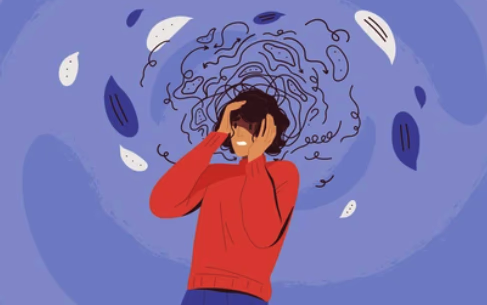
Understanding the Science Behind Vitamin B12 Injections
October 6, 2025
The Role of Radiation in Modern Cancer Treatment
October 6, 2025Anxiety is a common human experience characterized by feelings of unease, worry, or fear. While it is a typical reaction to stress, persistent and excessive anxiety can interfere with daily activities. Understanding this condition is the first step toward managing its effects and seeking appropriate support. Here is more information on anxiety, its potential causes, and the different types of disorders:
What Is Anxiety?
Anxiety represents a natural stress response characterized by feelings of worry, apprehension, or fear about future events or situations. While occasional anxiety is normal, persistent or excessive anxiety that interferes with daily activities may indicate an anxiety disorder. These disorders differ from normal stress responses in their intensity, duration, and impact on functioning. They typically persist for months or longer, significantly impairing a person’s ability to work, maintain relationships, or engage in daily activities.
What Causes It?
The specific causes of these disorders are not fully understood, though a combination of factors may contribute. Genetic predisposition can play a role, meaning individuals with a family history of anxiety have a higher likelihood of developing a disorder. Brain chemistry, specifically imbalances in neurotransmitters like serotonin and dopamine, is also implicated.
Environmental factors can trigger or exacerbate anxiety. Stressful or traumatic life events, such as the loss of a loved one, financial difficulties, or prolonged work stress, are common contributors. Certain medical conditions and the use of specific substances can also cause symptoms.
What Are the Different Types?
Anxiety disorders include several distinct conditions, each with its own specific diagnostic criteria. These are classified based on the nature and focus of the anxiety or fear.
- Generalized Anxiety Disorder (GAD): This is characterized by chronic and excessive worry about various aspects of everyday life.
- Panic Disorder: This involves recurrent and unexpected panic attacks, which are sudden periods of intense fear.
- Social Anxiety Disorder: This is defined by an intense fear of being judged, negatively evaluated, or rejected in social situations.
- Specific Phobias: These are characterized by an intense, irrational fear of a particular object or situation.
Other diagnoses include obsessive compulsive disorder (OCD) and agoraphobia.
What Are the Symptoms?
Symptoms can be categorized into three main types: psychological, physical, and behavioral. Psychological symptoms often include persistent worry, difficulty concentrating, irritability, and a feeling of being on edge. Individuals may find their minds going blank or feel a sense of impending doom.
Physical symptoms result from the body’s “fight-or-flight” response and may include a rapid heartbeat, sweating, trembling, and shortness of breath. Headaches, fatigue, muscle tension, and gastrointestinal issues are also common. Behaviorally, a person may avoid situations that trigger anxiety or develop compulsive routines.
What Coping Strategies Can Help?
Several strategies help manage the symptoms of these disorders. Mindfulness and relaxation techniques, such as deep breathing exercises and meditation, can calm the physiological stress response. Regular physical activity is also effective in reducing anxiety levels by releasing endorphins and improving overall mood.
Maintaining a balanced lifestyle is beneficial for managing this condition. This includes getting adequate sleep, eating a nutritious diet, and limiting caffeine and alcohol intake. Cognitive-behavioral strategies focus on identifying and challenging negative thought patterns that contribute to anxious feelings.
Seek Professional Help Today
Anxiety is a complex condition with various causes, types, and symptoms. While coping strategies can offer relief, professional guidance may be necessary for effective long-term management. A qualified healthcare provider can offer an accurate diagnosis and develop a treatment plan personalized to your needs. If you are experiencing a mental health disorder, seek professional assistance today.





